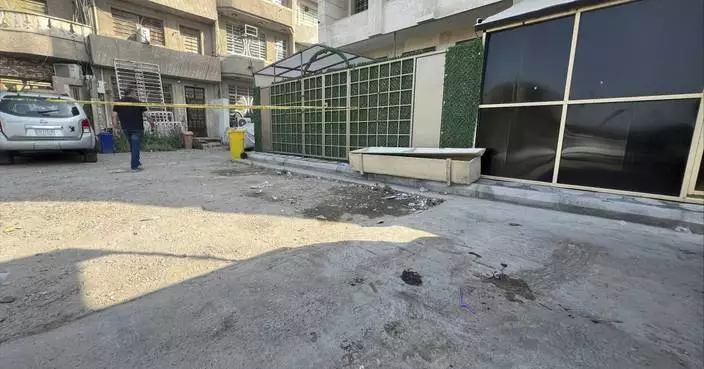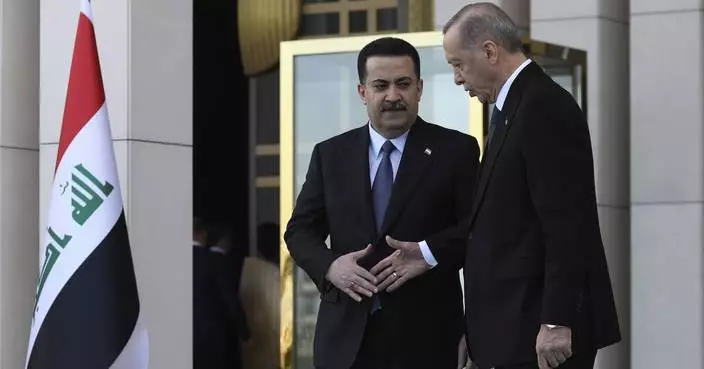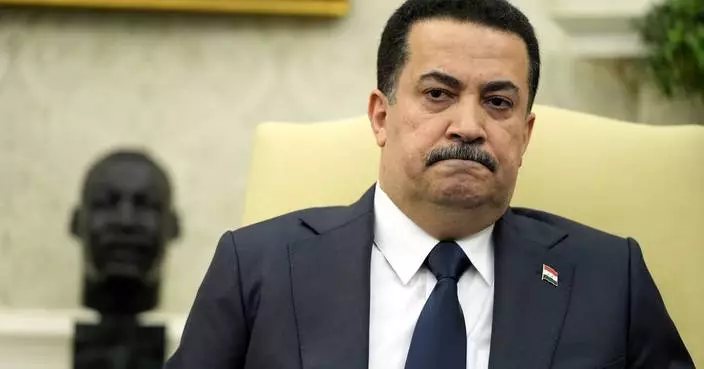The Iraqi military says three rockets have hit an installation north of Baghdad used by Iraqi troops and where American trainers are also present. There was no immediate word on casualties.
The late Monday attack on camp Taji, about 27 kilometers (17 miles) north of Baghdad, is the second on a military post housing U.S. personnel. An attack on an air base, also housing U.S. trainers, north of Baghdad on Saturday caused a small fire.
The brief military statement Monday said Katushya rockets were used.
Two military officials speaking on condition of anonymity because investigation is still underway said the rockets landed near an Iraqi air defense unit.
The attack comes amid rising tension in the Middle East between the United States and Iran.
BAGHDAD (AP) — Human rights groups and diplomats criticized a law that was quietly passed by the Iraqi parliament over the weekend that would impose heavy prison sentences on gay and transgender people.
U.S. State Department spokesperson Matthew Miller said in a statement that the law passed Saturday “threatens those most at risk in Iraqi society” and “can be used to hamper free-speech and expression.” He warned that the legislation could drive away foreign investment.
“International business coalitions have already indicated that such discrimination in Iraq will harm business and economic growth in the country,” the statement said.
British Foreign Secretary David Cameron called the law “dangerous and worrying.”
Although homosexuality is taboo in the largely conservative Iraqi society, and political leaders have periodically launched anti-LGBTQ+ campaigns, Iraq did not previously have a law that explicitly criminalized it.
The law passed Saturday with little notice as an amendment to the country’s existing anti-prostitution law. It imposes a sentence of 10 to 15 years for same-sex relations and a prison term of one to three years for people who undergo or perform gender-transition surgeries and for “intentional practice of effeminacy.”
It also bans any organization that promotes “sexual deviancy,” imposing a sentence of at least seven years and a fine of no less than 10 million dinars (about $7,600).
A previous draft version of the anti-prostitution law, which was ultimately not passed, would have allowed the death sentence to be imposed for same-sex relations.
Iraqi officials have defended the law as upholding societal values and portrayed criticisms of it as Western interference.
The acting Iraqi parliamentary speaker, Mohsen Al-Mandalawi, said in a statement that the vote was “a necessary step to protect the value structure of society” and to “protect our children from calls for moral depravity and homosexuality.”
Rasha Younes, a senior researcher with the LGBT Rights Program at Human Rights Watch, said the law’s passage “rubber-stamps Iraq’s appalling record of rights violations against LGBT people and is a serious blow to fundamental human rights, including the rights to freedom of expression and association, privacy, equality, and nondiscrimination.”
A report released by the organization in 2022 accused armed groups in Iraq of abducting, raping, torturing, and killing lesbian, gay, bisexual, and transgender people with impunity and the Iraqi government of failing to hold perpetrators accountable.
A group of Iraqi lawmakers said Sunday that they had launched a campaign to expel U.S. Ambassador Alina Romanowski, accusing her of interfering in the country’s internal affairs after she issued a statement condemning the legislation.
Iraqis interviewed Sunday expressed mixed views.
Baghdad resident Ahmed Mansour said he supports the legislation “because it follows the texts of the Quran and the Islamic religion by completely prohibiting this subject due to religious taboos.”
Hudhayfah Ali, another resident of Baghdad, said he is against it “because Iraq is a country of multiple sects and religions.”
"Iraq is a democratic country, so how can a law be passed against democracy and personal freedom?" he said.
Associated Press writer Ali Jabar in Baghdad contributed to this report.

FILE - Supporters of the Shiite cleric Muqtada al-Sadr sign a pledge to stand against homosexuality or LGBTQ, outside a mosque in Kufa, Iraq, Friday, Dec. 2, 2022. Human rights groups and diplomats criticized a law that was quietly passed by the Iraqi parliament over the weekend that would impose heavy prison sentences on gay and transgender people. (AP Photo/Anmar Khalil, File)










